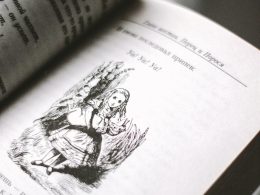Introduction
African American literature has long been an essential element of the literary world, with its powerful and provocative works providing a voice for a community whose history has often been silenced. But beyond their mere storytelling abilities, these works also serve as critical tools in uncovering hidden histories – revealing the stories that have long gone untold or unacknowledged. By exploring these narratives and delving deeper into their context and meaning, readers can gain new insight into the rich tapestry of African American culture and history. So let’s take a closer look at how reading between the lines of African American literature can help us unearth some of our most important cultural treasures.
The Uses of Hidden Histories in African American Literature
African American literature is a rich and diverse field that has been shaped by the experiences of Black people throughout history. One of the unique features of this genre is its use of hidden histories, which refer to stories and perspectives that have been overlooked or marginalized in mainstream narratives.
These hidden histories serve several purposes in African American literature. First, they give voice to individuals and communities whose stories have been suppressed or silenced. By bringing these narratives to light, writers can challenge dominant power structures and offer alternative perspectives on historical events.
Secondly, hidden histories can help readers understand the complexities of racism and oppression in America. Through detailed accounts of past injustices, authors can highlight ongoing struggles for equality while also celebrating the resilience and creativity of marginalized groups.
Hidden histories allow African American writers to explore their own identities within a broader cultural context. By delving into lesser-known aspects of Black history, authors can develop a deeper understanding of themselves as well as their place in society.
The use of hidden histories in African American literature serves as an important tool for confronting systemic injustice while also celebrating diversity and resilience within Black communities.
The Importance of Context inHidden Histories
The importance of context in hidden histories cannot be overstated. African American literature is rich with stories, tales, and narratives that are deeply rooted in the historical context of black people’s experiences throughout history.
Understanding the broader cultural milieu and social climate within which these works were produced is crucial to fully appreciating their significance. This means situating them within larger historical events, such as slavery or Jim Crow laws, as well as considering how they reflect contemporary issues facing African Americans today.
Moreover, understanding the literary tradition from which a work emerges can provide important insights into its meaning and significance. For example, examining how authors borrow from earlier writers or create new forms can reveal much about their artistic vision and political commitments.
It is essential to recognize that not all readers will approach these texts with the same background knowledge or perspectives. Thus, providing critical contextual information alongside literary analysis can help make these works more accessible to diverse audiences while also deepening our understanding of their complexities.
In short: Context matters! By analyzing African American literature through a historically informed lens and recognizing the richness of its cultural heritage we can gain valuable insights into our shared past while charting paths towards greater understanding and social justice for all people.
Conclusion
As we have seen, hidden histories are a vital element of African American literature. They allow us to gain a deeper understanding of the harsh realities that black people faced throughout history and how they overcame them. Through uncovering these hidden histories, we can gain insight into the struggles and triumphs of our ancestors and use this knowledge to inform our present circumstances.
However, it is important to remember context when examining these hidden histories. Without proper context, they may be misinterpreted or used inappropriately. We must take care not to sensationalize or exploit these stories for personal gain but instead approach them with sensitivity and respect.
As readers, we have a responsibility to engage with African American literature on multiple levels: as entertainment, education, and activism. By seeking out works that contain hidden histories and analyzing them within their historical contexts, we can deepen our understanding of what it means to be Black in America today.
In short, by reading between the lines of African American literature and uncovering its hidden histories, we give voice to those who were once silenced while shedding light on truths that might otherwise be forgotten or ignored altogether.












